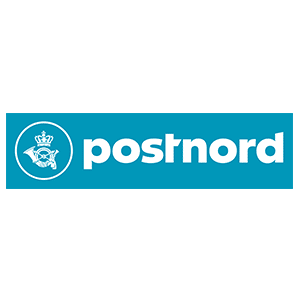The correlational study is aimed at validating the Authenticity Scale in Russian culture. Authenticity is considered a trait responsible for a person’s ability to be oneself. It helps people resist environment pressure and prevent self-alienation, which contributes to maintaining psychological wellbeing. The original Authenticity Scale includes three subscales: Authentic Living, Accepting External Influence, and Self-Alienation. In total, 2,188 respondents (Mages = , SDage = ; 78.1% female) participated in the survey. The dimensionality of the Authenticity Scale and its measurement invariance across sex, age, and depression rate subgroups was examined with exploratory and confirmatory factor analyses; the original tripartite structure was kept. Convergent validity was tested through correlation analyses with the Warwick-Edinburgh Mental Well-being Scale, the International Positive and Negative Affect Schedule Short-Form, the Centre of Epidemiological Studies-Depression Scale, the Rosenberg Self-Esteem Scale, and the Satisfaction with Life Scale. According to the CFA results, the structure of the Russian version differs from the original one slightly (item 1 was moved from the subscale Authentic Living to the subscale Accepting External Influence and item 4 was excluded); however, the modified factor model showed the best absolute and comparative fit statistics [CFI = 0.961, TLI = 0.949, RMSEA = 0.050 (90% CI [0.40; 0.60]) and SRMR = 0.037]. The reliability (McDonald’s Omega) of the Authenticity Scale subscales was satisfactory and ranged from 0.78 to 0.84. It was revealed that youth are more likely to have high scores on Accepting External Influence and Self-Alienation than adults. Men and women did not significantly differ on the sub-scores of Authenticity Scale. Multigroup CFA also showed that Authenticity Scale scores may be biased in people with high levels of clinical depression, in terms of the item intercepts. Authentic Living is positively connected with mental wellbeing, self-esteem, positive affect, satisfaction with life, and negatively with depressive symptoms and negative affect; reverse trends were found for Accepting External Influence and Self-Alienation subscales. The Russian version of the Authenticity Scale is a valid, reliable tool that may be recommended for use in various areas of non-clinical practice.
Inclusion
Personal credibility the most required philosophy in the present busy and you may altering area in which anybody changes their social, economic, and you may informative condition and even identities from time to time during their lifetime. To be genuine, is on your own – this type of purposes and you will wants are essential into psychological wellbeing in the one another eudemonic and you will hedonic meanings (Kernis and you will Goldman, 2006; Smallenbroek ainsi que al., 2017; Sutton, 2020).
The Credibility Size: Recognition for the Russian People
Private credibility contributes to some other helpful psychological phenomena, such as for instance confident affective dating, subjective really-being, high worry about-respect, compassion and thinking-compassion, and psychological control (Sheldon et al., 1997; Neff and Suizzo, 2006; Theran, 2010; Boucher, 2011; English and you can John, 2013; Kifer et al., 2013; Wickham, 2013; Bochaver et al., 2019; Zhang et al., 2019; Yanchenko and you can Nartova-Bochaver, 2020). As well, it is a buffer between be concerned and its particular kissbrides.com see this website outcomes otherwise a good negative predictor of emotional vulnerability (Goldman and you can Kernis, 2002; Satici ainsi que al., 2013). Ergo, that is a quality that is worthy of investigating, computing, and you can developing.
Within its really general form, authenticity can be described as someone’s ability to become true in order to on their own, its character, and their lives trajectory. It looks are among the many “troubling” tricky concepts, not, because it is available on their own out-of one mission standards and you will ways a higher coherence having a specific person’s ideas or suggestions that will be not at all times explicit (Jones, 2010). This particular feature out of authenticity will make it tough to analysis the content validity of your own related devices, and you will, therefore, most validation scientific studies are restricted to the new investigating divergent validity simply. Moreover, information authenticity differs round the societies, and for cross-cultural studies, a constant and you can credible instrument trapping new center articles of authenticity will become necessary.















